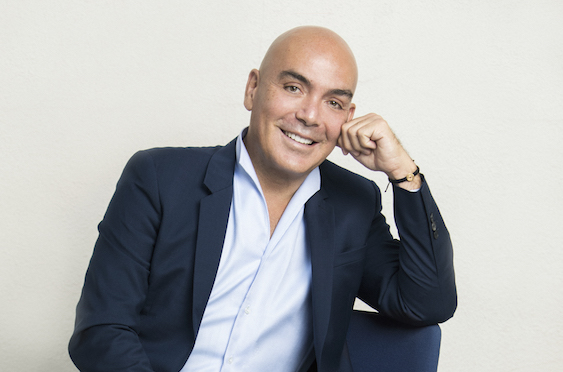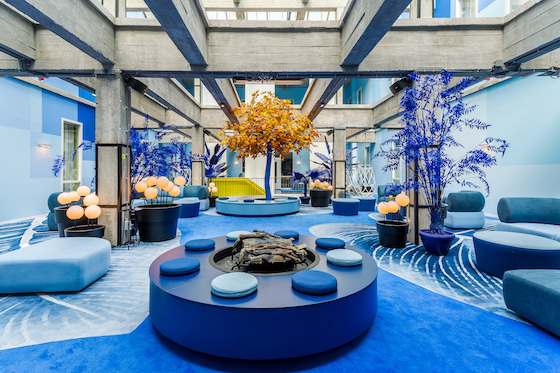Kike Sarasola, founder and president of Room Mate Group, sees blue skies ahead for his Madrid-based boutique hotels and vacation rental apartments. He spoke with HOTELS about offering his properties to health workers, how the U.S. travel ban is impacting his company, and the key things that hotel guests need to hear right now.
HOTELS: How are you capturing business now that travel is gradually picking up?
Kike Sarasola: Right now it’s trial and error — we find that for each city the demand is different, and we adapt. In Rotterdam, for example, we have a beautiful food court; one campaign message was “Come, Stay Safe, Stay Well (the company’s health-conscious protocol program), go to the food court — it’s huge, and you can take the food to your room.” But we tried that in another city and it didn’t work.
We don’t believe in a discounting war. Our rates are not the same as pre-COVID rates, but I think it would be terrible if we got into a price war. We look for other ways to attract clients: Come to our terrace and we’ll give you a cocktail, or a pizza. Every week we try different approaches; one week they work, the next week they don’t.
Right now I personally would not give anyone advice. I would say it’s trial and error.

H: Are travelers pulling the trigger?
KS: The nine hotels we have reopened are ramping up very well. In Madrid, we are almost at 50%. The only one that’s seen a drop is Miami. It’s amazing how fast — it was at 60% the first weekend, then it just dropped off. We’re trying everything to get clients to come back — to see that it’s safe.
For us, the U.S. is a big audience. They’re the ones who spend the most. The (EU) ban on American travelers is terrible. I think countries should ban people instead. Before you get on a plan, have a COVID test, if it’s negative you can travel. I think we should be more reactive to the individual, not countries.
HOTELS: Aside from cleaning and social distancing protocols, how do you ease travelers’ fears?
KS: We like to say we are your friend in each city, and guests are asking us where would you go, what would you do? We say this restaurant is part of our brotherhood — we recommend it, have dinner with them. People want to feel secure, and that’s something we are not doing correctly in our industry. All of the protocols are correct, but I think people need to hear tranquility, a secure message that no one has been providing.

HOTELS: During the spike in COVID cases in the spring, some of your properties were allocated to house health care workers. How did that come together?
KS: Spain’s health minister asked for beds, and we offered hotels for patients who tested positive. But our hotels are in the center of cities, not near hospitals. They said other hotels were better located. Then we came up with the idea to lend hotels to hotel workers for free — they were afraid to go back to their homes and spread and spread the virus to their families. So we provided 12 of our hotels and three apartments in a number of cities. In some places they were used for health workers, and two were for the elderly. We followed strict protocols and continue to follow those now that hotels are reopening.
HOTELS: How is social distancing impacting social/lifestyle hotels like yours?
KS: We cannot let people congregate, and they have to wear masks. So there’s no social life. People prefer to go out into the streets. Our lobbies, as it should be, are half empty. You cannot just be there and have a social meeting. But our terraces are booming. We have people lining up because they want to be in the open air.
HOTELS: How has the pandemic affected demand for Be Mates apartment rentals?
KS: The apartments are doing incredibly well. People find themselves more secure in their own environment. They can buy their own food and cook their meals. This branch suffered the least during the pandemic. We’re planning 15 new apartment buildings over next 18 months.
HOTELS: Has the development landscape changed much for you?
KS: I believe it’s a moment to do mergers. The bigger you are, the more likely you are to survive. Right now, a lot of small apartments and hotels are struggling. They should open their eyes. We’re looking at mergers, joint ventures, buying properties. It’s a time to look at opportunities and we want to grow in new cities. We are looking at five to ten new deals.
We’re looking at everything from ski resorts in Italy to interesting beach properties in the Caribbean – we’re having a fun time. And there are a lot of opportunities.
